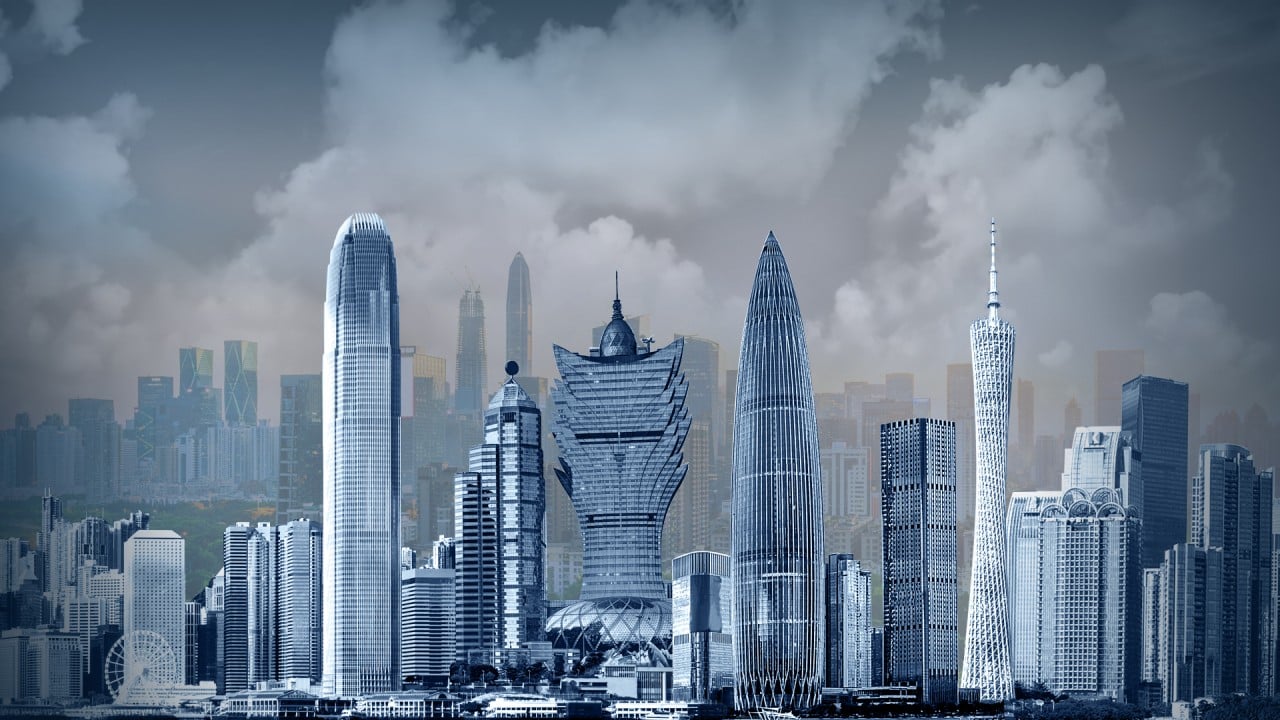Hong Kong’s advantages in producer services can be a major driving force for the future growth of southern China’s Greater Bay Area, a former high-ranking official known for his economic insights has suggested.
While mainland China lags far behind Western countries in this regard, Hong Kong provides mature services to final producers of goods and could be an effective supplement for the manufacturing hub of Guangdong province, former mayor of Chongqing municipality Huang Qifan said at a forum in Guangzhou on Sunday.
Producer services, which in contrast to consumer services primarily count businesses as their client base, are the “weakest link” in the mainland’s production system, Huang said at the International Finance Forum. However, he added, Hong Kong excels in this area as a world centre of finance, trade and professional services.
Dividing the industry into 10 categories, including research and development, financial services, logistics, legal services and after-sales services, he said Hong Kong is strong in almost all of them aside from being “slightly behind” in research and development.
“I believe it is key for the GBA to integrate producer services [spearheaded by Hong Kong] and the manufacturing industry in Guangdong so as to promote high-quality development in the area,” said Huang, also a distinguished professor at Fudan University.
When a country controls the producer service industry, it can spread manufacturing all over the world, let others work for it and take most of the benefits
Huang pointed out that the producer service industry accounts for 70 per cent of the US service industry, more than half of its gross domestic product (GDP). In Europe, it accounts for about 40 per cent of the region’s GDP.
“When a country controls the producer service industry, it can spread manufacturing all over the world, let others work for it and take most of the benefits,” he said, adding this is where the US’ economic strength lies.
China, in contrast, has a services sector with only 57 per cent of GDP. Of that figure, producer services account for only 30 per cent. That means producer services contribute to less than a fifth of its GDP, he said.
“If China’s economy is to rise in the future, the producer service industry should increase its proportion to at least 30 per cent,” he said.
Huang gave the example of Apple, which has almost no fixed asset investment in China and has never directly manufactured a piece of hardware.
However, it takes away most of the gross profit from a mobile phone, leaving only 10 per cent for Chinese manufacturers.
“This is because Apple is the creator of the producer service industry, which controls everything from research and development to digital empowerment, trade, wholesale and after-sales,” he said.
Huang concluded that Hong Kong should be a leader in the Greater Bay Area for these services. “It has not called itself an economic centre or a manufacturing hub,” he said. “But it’s been a centre of professional services in the past century, which includes a large number of producer services.”
Hong Kong’s economy has been among the world’s most services-oriented, with related sectors accounting for over 93 per cent of GDP last year according to government data. The lion’s share of these services are producer-based, targeting the business community rather than individuals and households.
Additional reporting by He Huifeng



